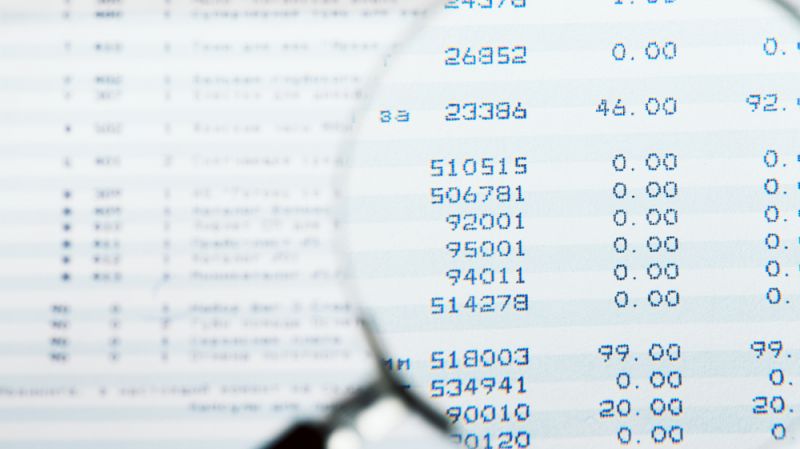Fear and Auditing
For their mental health and effectiveness, auditors have to find the calm spot between contained confidence and contained fear

Contrary to their public persona as stoic professionals, auditors are often dogged by fear, says Bertrand Malsch of Smith School of Business. Malsch conducted a field study, with Henri Guénin-Paracini (Laval University) and Anne Marché Paillé (Ghent University), of 44 professionals in the French branch of a large audit firm. They found that auditors rested easy only at the end of the audit process, and that other times “signs of comfort. . . remained relatively rare.” The auditors fear “getting it wrong” and can never be sure they have accounted for all the information they have to verify. To mitigate their fears, auditors mobilize their “practical intelligence” — their accounting street smarts — or use defensive strategies such as ignoring the risks that worry them, reducing the scope or standard of work, or applying standardized procedures without investing any judgment. Fear is useful, Malsch notes, because it helps auditors be vigilant, but it needs to be tempered by confidence.
In the popular imagination, auditors are the automatons of the working world. If creative types are expected (and allowed) to be gregarious and emotional, auditors are expected to dispatch their responsibilities in a bloodlessly rational and mechanistic manner. It is a vibe they and their firms cultivate to project confidence and vigilance.
Yet, beneath that exterior, the inner lives of auditors in the field are often shaped by fear, which they suppress in a number of ways, says Bertrand Malsch, associate professor and Distinguished Faculty Fellow in Accounting at Smith School of Business.
“I don’t think auditors or their firms are aware of these issues around fear,” says Malsch. For that matter, emotions in general “lead a shadow existence in accounting research.”
To remedy that, Malsch teamed up with Henri Guénin-Paracini (Laval University) and Anne Marché Paillé (Ghent University) to learn more about the emotional lives of auditors. They went into the field to observe and interview 44 professionals in the French branch of a large audit firm.
Fear As Emotional Experience of Risk
They found that auditors rested easy only at the end of the audit process, and that the remainder of the time, they often had to devote energy to managing fear.
“In the audit teams we monitored, signs of comfort . . . remained relatively rare,” they write in the journal Accounting, Organizations, and Society. “Instead, it was not uncommon for us to see our informants frowning, turning a bit pale or red, biting their nails, shaking their legs, getting irritable, looking drawn, sweating, taking pills against stomach ache, holding their breath, double checking one thing or the other, and so forth. Altogether, these behaviors were in our eyes more suggestive of concern than comfort, and our semi-structured interviews confirmed this interpretation.”
What are auditors afraid of? Fear has been described as the emotional experience of risk. In the auditor’s case, the major risk is “getting it wrong,” says Malsch. Auditors can never be entirely sure that they have accounted for all the information they have to verify, or where to find the smoking gun if they note a misstatement on an account. This raises ethical and professional issues that are difficult to reconcile.
“We [auditors] are in a more uncomfortable position than a policeman investigating a case because the policeman knows for a fact that a crime has been committed"
As one senior auditor explained to the researchers:
“We [auditors] are in a more uncomfortable position than a policeman investigating a case because the policeman knows for a fact that a crime has been committed [...]. In auditing, we’re also required to carry out an investigation, but we don’t actually know if there was a crime in the first place. So unlike a police detective, we don’t set out with any definite certainties.”
It doesn’t help that the extensive body of audit guidance does little to reduce the uncertainties faced by auditors, the researchers say. “As emphasized by many of our informants, blindly relying on official audit technologies would even actually be the surest way to failure,” they write. The business risk methodologies are unwieldy and time-consuming to use and get in the way of auditors using judgment and “feeling the field.”
Defensive Strategies
To mitigate their fears, auditors adopt a number of strategies, says Malsch. For one, they mobilize their “practical intelligence” — their accounting street smarts. If that doesn’t work, they use one of several defensive measures. They ignore the risks that worry them. They reduce the scope or standard of work, such as quickly auditing a high-risk section. Or they mechanically apply standardized procedures without investing any judgment. In extreme cases, they reduce their expectations of what they consider to be a job well done. “When their desire to do a good job makes them excessively afraid of failing, they gradually abandon it and find other motivations to wake up in the morning and go to work.”
Malsch and his colleagues emphasize that there is a place for the fear of failure but that there is a delicate balance between fear and confidence. Confidence without fear, they say, is a “risky cocktail” for auditors required to be professionally vigilant.
“On the other hand, . . . fear without confidence is also a dangerous mix, which may induce auditors to maintain at a distance (and thus ignore) the inherent risks of their responsibilities,” they write. “Ultimately, a sense of fear curbed by confidence and a sense of confidence tempered by fear is what enables public accountants to develop their practical intelligence, and thus to become comfortable without overlooking the risks of their job.”
— Alan Morantz